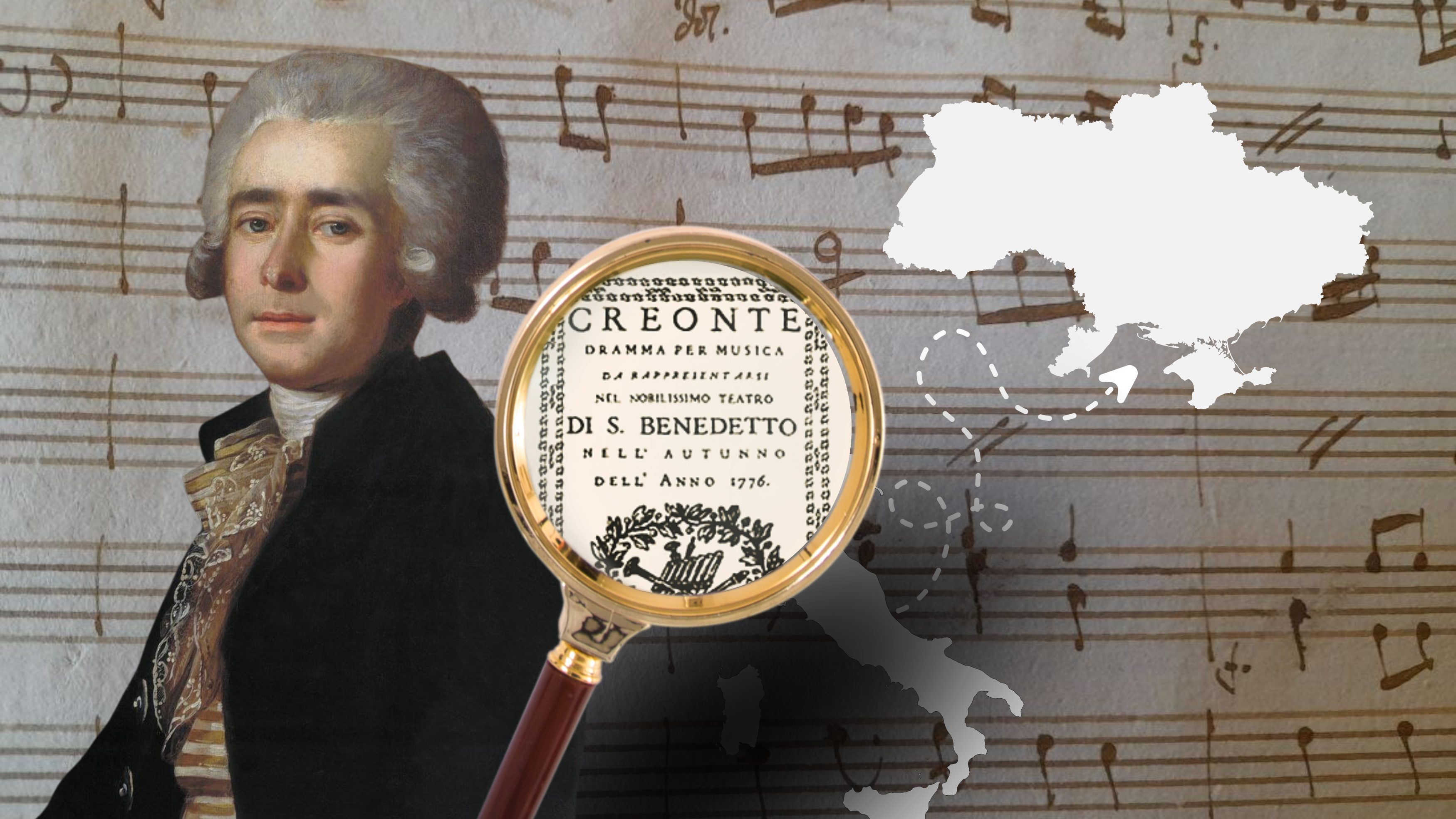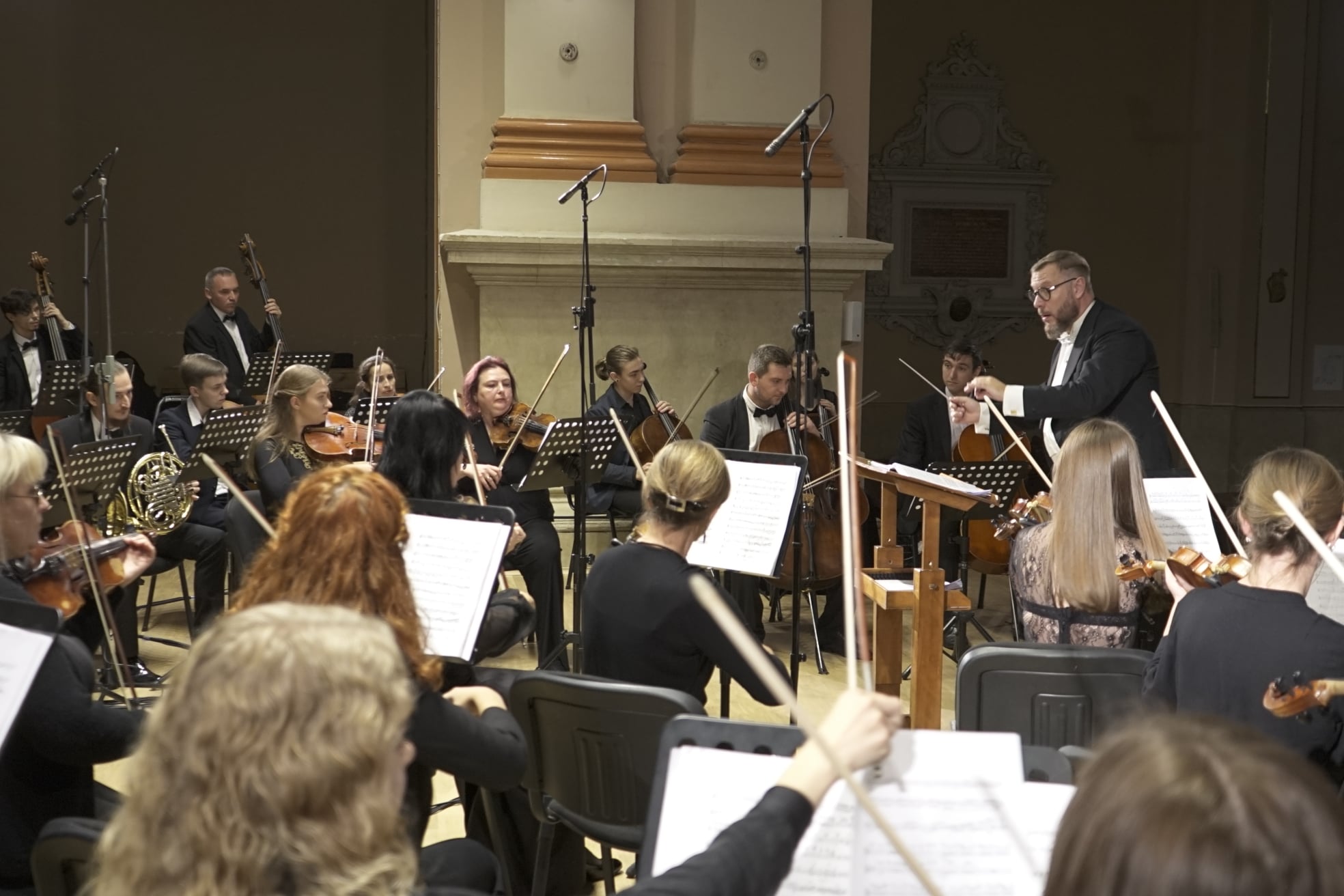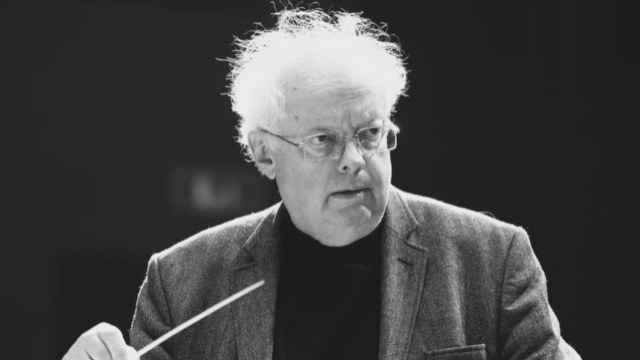Every time the Bolshoi Orchestra performs Tchaikovsky to sold-out Western crowds, they're secretly playing Ukrainian melodies.
The composer behind Putin’s grandest state ceremonies? Ukrainian. The music once broadcast daily from the Kremlin? Ukrainian. That iconic “Russian” polyphony echoing through cathedrals? Also Ukrainian.
At the center of it all is Dmytro Bortnianskyi — the Ukrainian prodigy who brought opera to Russia after conquering Europe’s biggest stages. His legacy runs so deep that Russia still uses his work whenever imperial prestige is on display — from Solzhenitsyn’s funeral to the 300th anniversary of Saint Petersburg, a spectacle choreographed by Putin himself.
Now, a bombshell discovery in Portugal has unearthed Bortnianskyi’s long-lost first opera, hidden for 250 years. As Ukraine fights to defend its borders, this rediscovered masterpiece has become a cultural weapon in another war — the battle to reclaim a legacy Russia has tried to hijack for centuries.

Building the "great Russian culture" from scratch
Dmytro Bortnianskyi was born in 1751 in Hlukhiv, the former capital of the Cossack Hetmanate — a short-lived Ukrainian state undone by elite infighting and quickly devoured by an ascendant Russian Empire. By the mid-18th century, Ukraine’s lands had been absorbed — but land wasn’t Moscow’s most valuable gain.
For centuries before Russia's conquest, Ukraine had been part of the Polish-led Polish-Lithuanian Commonwealth, a powerful union that shaped Eastern and Central Europe. This placed Ukrainian culture at the heart of the broader European cultural conversation — a privilege that Russia, isolated and backward, could not afford.
As the Russian Empire tried to reinvent itself as European, it leaned heavily on European-educated Ukrainians to supply the talent — and legitimacy. Bortnianskyi was one of them. His path began at the age of seven, when his church choir voice earned him a place in the Imperial Chapel Choir of St. Petersburg — a launchpad for a generation of gifted Ukrainians quietly laying the cultural foundations of the new empire.
Bortnianskyi honed his craft under Baldassare Galuppi, the Venetian maestro who pioneered comic opera and left his mark on Mozart. In 1769, Galuppi returned to Italy, bringing the 17-year-old prodigy along and granting him access to the music library at St. Mark's Cathedral — the era's most prestigious music school.
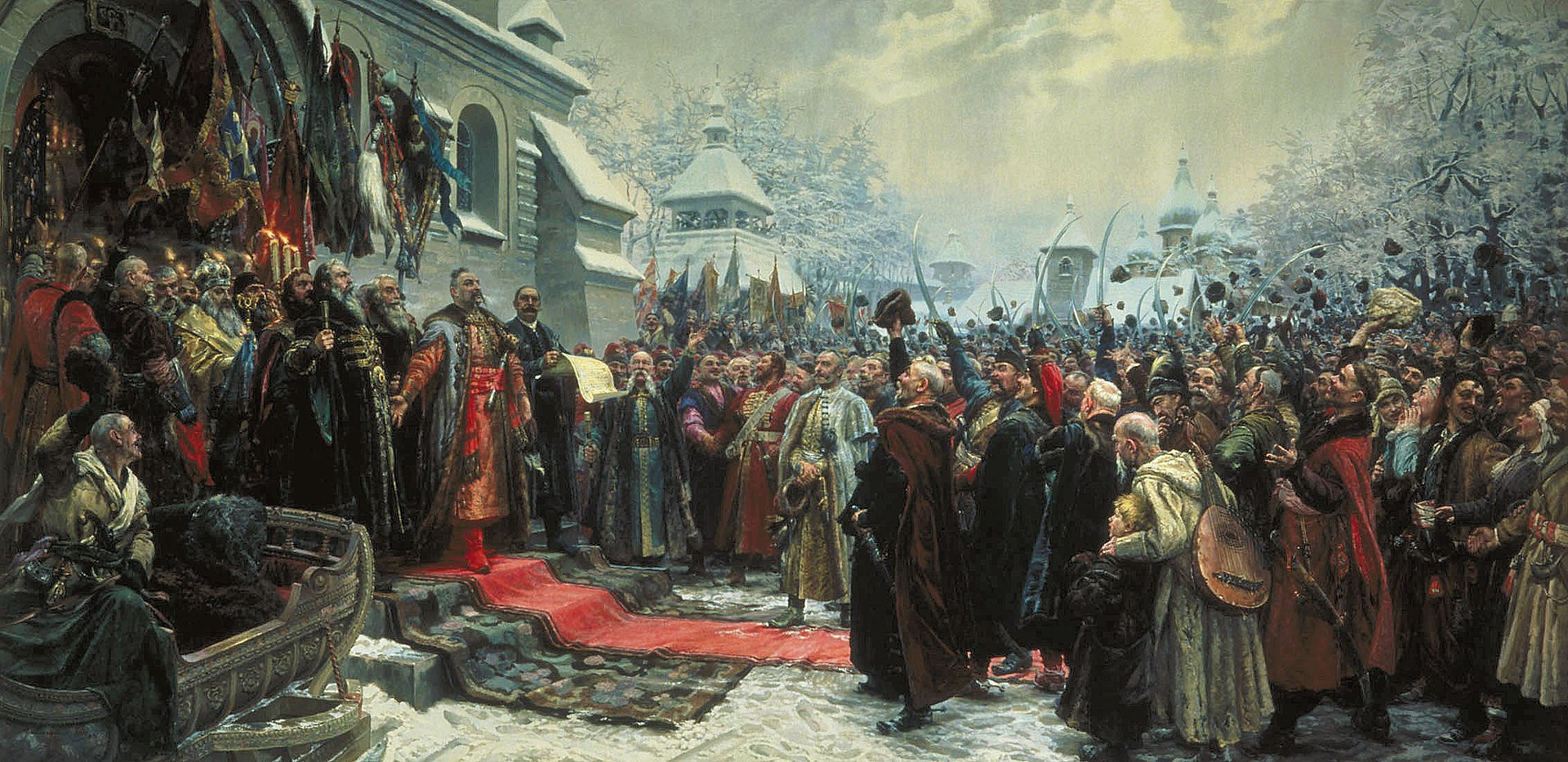
Behind Ukraine’s fateful security deal that unleashed centuries of Russian colonial grip
From Venice's standing ovation to Russia's cultural theft
Bortnianskyi spent several years traveling Italy, studying in its top opera schools, learning polyphony in local churches, and having the one-in-a-lifetime honor — studying under Giovanni Battista Martini, Europe's key musical educator who mentored Mozart and Bach.
The talent, coupled with opportunities, paid back. In 1776, Bortnianskyi, aged just 25, debuted at Venice's leading opera stage — San Benedetto Theater, Europe's most prestigious and competitive opera house of that time — with his first opera, Creonte, whose lyrics were written with top librettist Marco Coltellini, who collaborated with many stars, including Mozart.
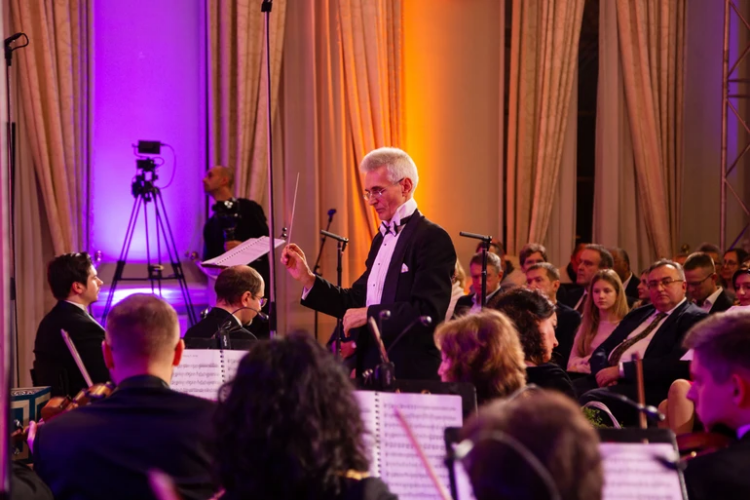
The libretto, inspired by Sophocles’s Antigone, reimagines the tragedy with a hopeful twist, shifting from a fatal ending to one where power, tyranny, and the battle between law and lawlessness play out in a victorious resolution.
The work captivated the demanding Venetian audience and ran for an entire season. Buoyed by this success, Bortnianskyi quickly followed up with two more operas in the trilogy — Alcide (1778) in Venice and Quinto Fabio (1779) in Modena.
His repertoire expanded beyond opera to include sacred works in Latin and German, offering a unique polyphonic mastery — both a cappella and with orchestral accompaniment.
However, following its 1776 triumphant run, Creonte's quickly vanished from the view of the Italian public — so did its author.
Summoned home by the Russian imperial court to repay his scholarship, the Ukrainian prodigy was pulled back into service — tasked with composing the very sound of Russia’s imperial ambition.
"Ukrainian Mozart" who shaped the sound of Russia
Back in St. Petersburg, Bortnianskyi was appointed court composer and eventually rose to lead the Imperial Chapel, becoming the musical architect of the Russian Empire for the next three decades.
However, he wasn’t just writing music — he was building an empire’s identity from scratch. Like his teacher Galuppi, who had modernized Russia’s sacred music before him, Bortnianskyi took on the challenge of aligning Russian liturgical sound with Europe’s highest standards.
The composer, dubbed "Ukrainian Mozart," pioneered Russian opera, redefined church polyphony, and shaped the sound of Russian prestige — all through the fusion of Ukrainian tradition and Italian training.
At court, he quietly stacked the deck in Ukraine’s favor, recruiting young talents from his homeland and surrounding himself with fellow Ukrainians — the empire’s unofficial engine room of artists, thinkers, and officials.
However, success came at a cost. As the empire grew, Ukrainians found themselves under mounting pressure to assimilate — a strategic push for Ukrainian artists to adopt Russian language, customs, and values in exchange for excellence, a trend that persisted through both imperial and Soviet eras.
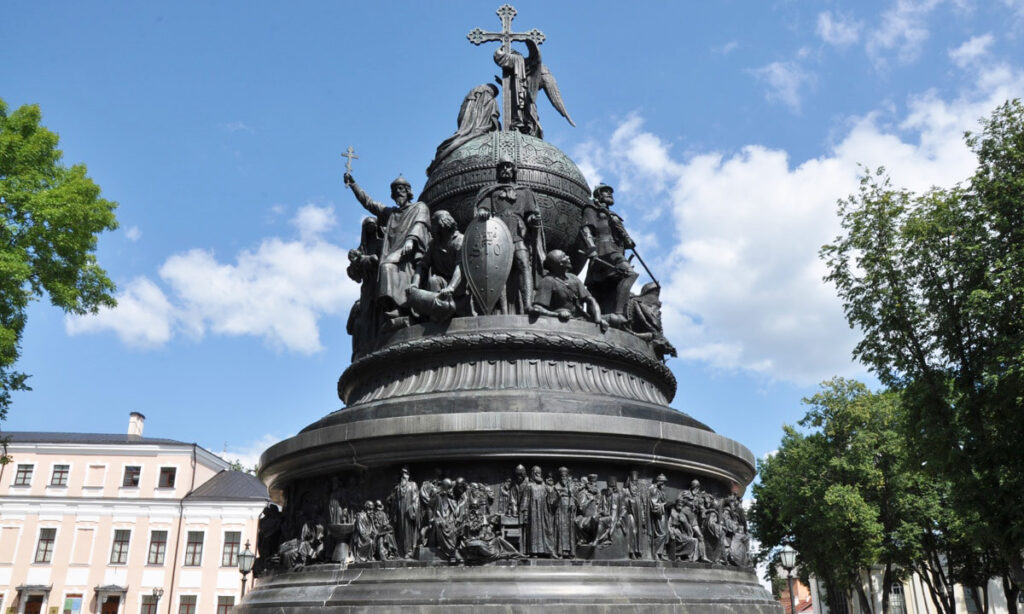
Bortnianskyi's death in 1825 coincided with Russia's turn to nationalism, and his overly Ukrainian and over-European legacy quickly fell out of favor.
Yet, he remained a key influence on generations of Russia's classics, especially its top musical export — Tchaikovsky. The composer not only edited Bortnianskyi's works but also wove his melodies — Creonte included — into his own compositions.
Moreover, at least one of Bortnianskyi’s creations outlasted not just his critics — but the empire itself. His anthem How Glorious is Our Lord in Zion, written just after his return from Italy, became Russia’s unofficial national anthem for over a century, echoing daily from the Kremlin's Spasskaya Tower until the 1917 Revolution. Later, it was adopted by pro-monarchy forces and became the anthem of Russia’s émigré diaspora fleeing communism.
To this day, Bortnianskyi remains inevitable for Russia's attempts to trumpet its imperial might — from military parades and holidays in Russia's cathedrals to state celebrations like the 300th anniversary of Putin's hometown St. Petersburg, where he personally led preparations to impress 45 invited global leaders.
The 250-year musical time bomb
But in 2023, this long-standing status quo — built on Russia’s century-old monopoly on Bortnianskyi — was shuttered by a stunning discovery.
While researching another Ukrainian composer, Maksym Berezovskyi, musicologist Olha Shumilina unearthed the lost score of Creonte, Bortnianskyi’s first opera. Premiered in Venice in 1776 and believed lost for centuries, the Baroque work had quietly rested in the archives of Lisbon’s Ajuda Library, preserved in the National Library of Portugal for over 200 years.
“The Venice premiere of Creonte in 1776 established Bortnianskyi’s mastery of operatic composition through its structural complexity and technical perfection,” Shumilina said.
Shumilina notes that Creonte's success likely paved the way for composing two more Italian operas in a series – Alcide, also staged in Venice, and Quinto Fabio, performed in Modena, with Alcide having already been published and staged at the Solomiia Krushelnytska State Academic Theater of Opera and Ballet in Lviv.
Creonte, however, offers a fresh perspective on Bortnianskyi’s artistic evolution.The long-awaited discovery not only revives a lost masterpiece but offers fresh insight into Bortnianskyi’s lasting impact on European opera.
“The Venice premiere of Creonte in 1776 established Bortnianskyi’s mastery of operatic composition through its structural complexity and technical perfection,” Shumilina added.
Fighting Russia's colonialism note by note
In the summer of 2023, after unearthing the long-lost score of Creonte, Ukrainian musicologist Olha Shumilina brought it home. She reached out to conductor Herman Makarenko in Kyiv with a bold proposal: stage Bortnianskyi’s opera for the first time in centuries.
Just a year later, in November 2024, Creonte returned to life on a Kyiv stage — a milestone Makarenko called “the world premiere of Creonte.” The historic performance was supported by UNESCO and Europa Nostra, two of Europe’s leading cultural heritage institutions.
However, the Kyiv premiere was more than a cultural milestone — it struck at the heart of Russia’s long-standing effort to claim Ukrainian artists as its own, a strategy thatpaved the way for the full-scale invasion and escalated during it.
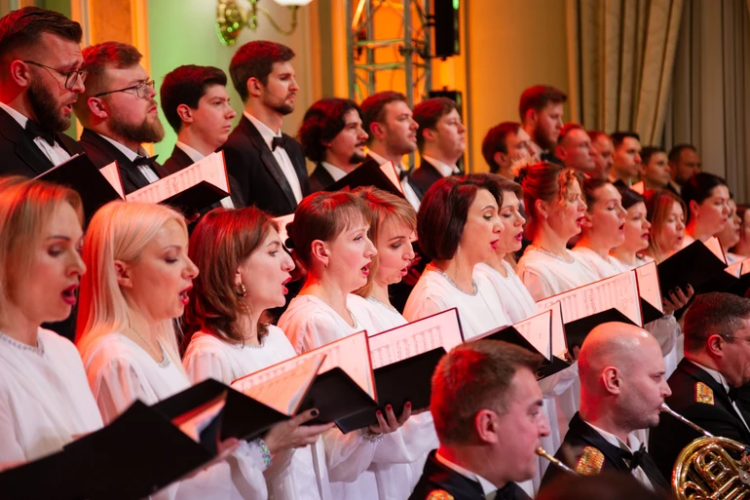
In 2022, Russia passed the Law on Intangible Ethnocultural Heritage, enabling it to retroactively claim historical figures who lived under the Russian Empire — just like Bortnianskyi — as part of “Russian culture” regardless of their origin. In response, Ukraine has since rolled out a wave of decolonization laws to reclaim its cultural legacy.
Anna Gadetska, musicologist and program director of Open Opera Ukraine, highlights the need for global stages to reclaim Ukraine's cultural heritage in these critical times:
"The rediscovery of this music demonstrates Ukraine's rightful place among European cultural traditions," she said. "My hope is that audiences will increasingly embrace Ukrainian Baroque music."
However, Creonte's return to Bortnianskyi's homeland is a rare victory, as Ukraine's musical heritage remains scattered. After the 1917 Revolution, Bortnianskyi's Alcide found its way to the British Museum, while Quinto Fabio now rests in Moscow.
"This is an important event for Ukrainian culture," says Shumilina. "Thank goodness that the Creonte score wasn't found in the archives of our northern neighbor, Russia. I think that this premiere wouldn't have happened."
Now, the team hopes to take reclaiming Bortnianskyi's Ukrainian identity a step further and stage Creonte in Austria in 2026 to celebrate its 250th anniversary internationally — an effort endorsed by Austria's embassy in Ukraine.
"The Russian aggressor not only seeks to seize our territories but also imposes its ideology on us," Makarenko explained. "He wants to destroy us as a nation by stealing our culture, so it's very important to defend our cultural heritage."
Read also
-
Non-Russian avant-garde, or how Russia appropriates Ukrainian culture
-
Genocide, assimilation, theft: Kazakh historian reveals Russian colonialism’s ruthless playbook
-
Texty: Russian museums refuse to return 110,000 Ukrainian looted treasures
-
Orientalism reanimated: colonial thinking in Western analysts’ comments on Ukraine

